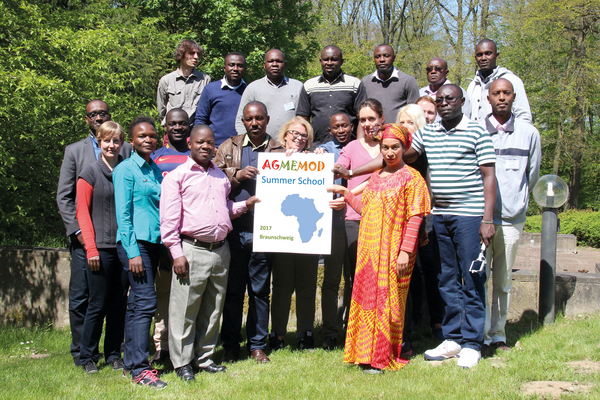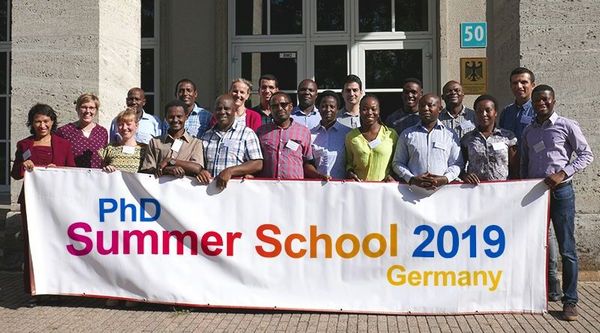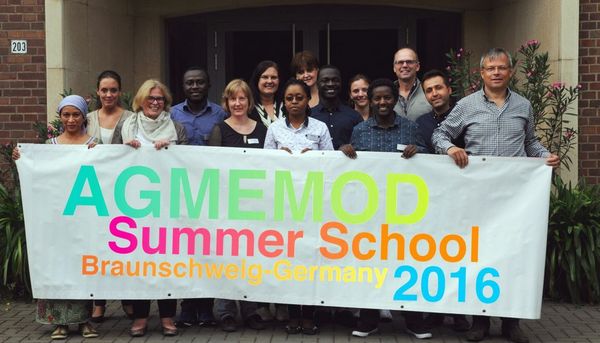Expertise
AGMEMOD goes Africa
Aida González-Mellado | 29.06.2022
AGMEMOD started in 2013 a partnership with the Association for Strengthening Agricultural Research in Eastern and Central Africa (ASARECA) to develop several country models to project food prices in Ethiopia, Kenya and Uganda.
The proposed project took forward building regional capacity for analysing and implementing appropriate agricultural policies. Since then, several countries have worked with AGMEMOD and have institutionalized the model to find future food market trends for strategic decisions for food security in countries from Eastern and Central Africa. Currently different African scientists work and develop AGMEMOD country models for their countries. The AGMEMOD consortium offers online support on developing the country models and getting policy advisement based on the model results. Furthermore, we offer regularly Summer Schools for scientists who start working with AGMEMOD.
Using evidence obtained from scientist research to design agricultural policies is a successful approach applied in several European countries. In the PhD summer school 2019, African and Asian students have learnt some procedures implemented at Thünen Institute to support the policy making process in Germany in a theoretical and empirical framework.
Government policies in Sub Saharan African countries are typically aimed at assuring the food security their citizens’. However, several challenges have to be considered when designing policies as there is a myriad of possible causes and potential solutions. Key questions in this context are:
- How could science support the policy making process?
- How to write policy statements for policy makers and stake holders?
- How can scientists present their results in such a way that these are understandable for policy makers and stakeholders?
Answers for these questions have been presented and discussed with the participants throughout one week Summer School taking examples of the day-to-day work of the Thünen Institute.

In May 2017, 15 agricultural economists from Kenya, Ghana, Rwanda and Uganda visited the Summer School in Braunschweig. They work in their home countries in national research institutes or ministries of agriculture. They were invited with the perspective to build up a long-term cooperation with each other. This is particularly relevant for Rwanda, Uganda and Kenya. These member states of the EAC (East African Community) are planning a deeper regional trade integration. Here, an agricultural market model such as AGMEMOD can help to assess the consequences of different policy concepts.
The preparation began eight months earlier by providing participants assistance via e-mail and Skype to develop the respective market balance sheets. Already there it became apparent that the country-specific peculiarities do not allow a generalizing pan-African model approach. AGMEMOD can be flexibly aligned by each country team to the national market structures and at the same time ensures that the country models are comparable and can be linked together later.
During the Summer School, it was clear to us, that the Thünen Institute is entering in a new research territory. Although international institutions have already initiated similar modeling projects, they do not pay extend their efforts to long-term capacity building of the same individuals. It is precisely this structure and networking among each other that are important to enable efficient structures of scientific policy advice to grow.
The Summer School "AGMEMOD goes Africa 2016" has enabled young scientists from Africa and Europe to make their first entry into model-based policy advice. Together, students and scientists discussed the methodology and outcomes of a example model for Rwanda.
A total of 14 students and scientists from Bosnia and Herzegovina, the Democratic Republic of the Congo, Ghana, Germany, Iran and Latvia participated in the Summer School.








